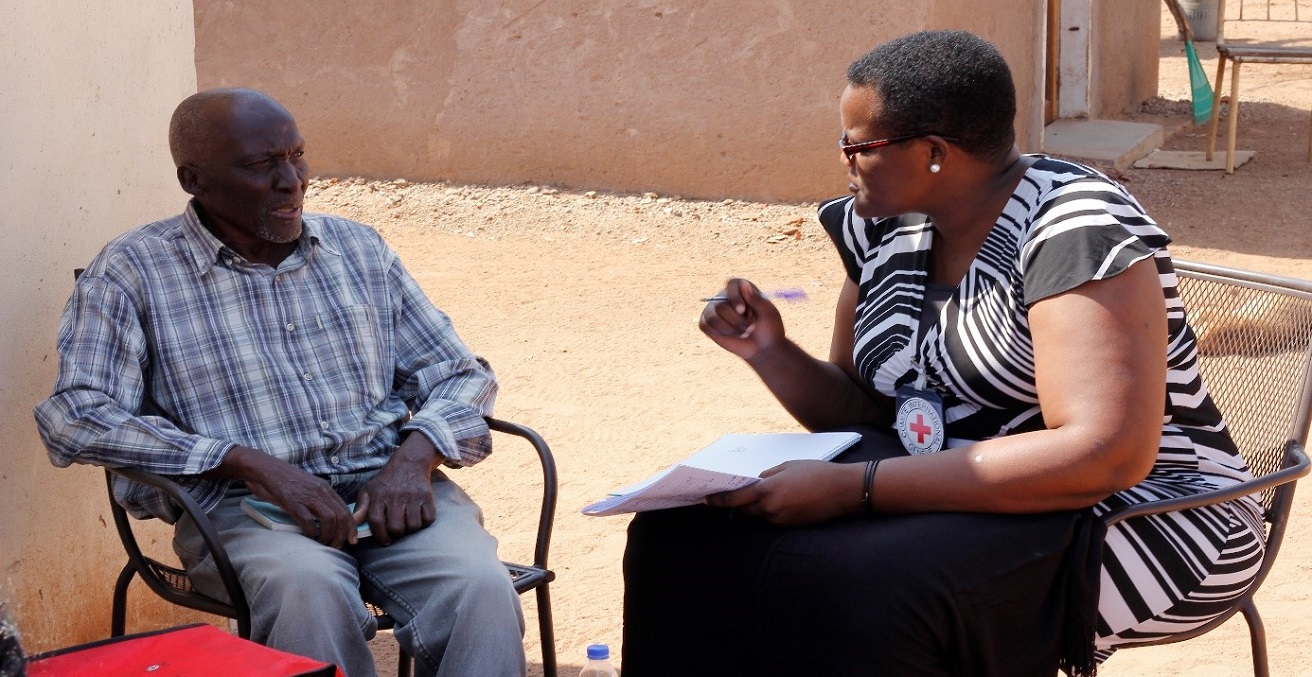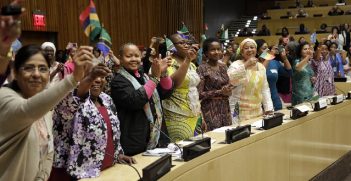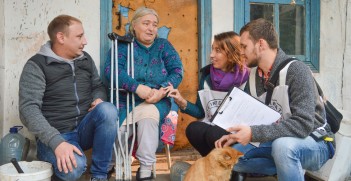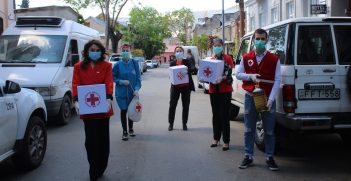Living in Absence: Families of Missing and Deceased Migrants in Zimbabwe

Losing a relative is painful, and not knowing how to search for them only doubles the tragedy. In Zimbabwe, the International Committee of the Red Cross works with families affected by migration to help them trace the fate of missing loved ones.
Zimbabwe is a site of much irregular migration. For decades, migrants were deported and left stranded. Many would find their way back to their original homes on foot, with some walking over two hundred kilometers. From childhood, citizens of Zimbabwe come across migrants in vulnerable circumstances. Some would be sick, needing medical attention. Women could recite horrible ordeals of rape, and how men would be butchered to death by criminal gangs while they were forced to watch. Often, the families of these migrants who go missing would never hear of their fate.
The International Committee of the Red Cross (ICRC) focuses on missing migrants as an operational priority in Africa. Testimonies of workers for the ICRC detail difficulty sleeping after interacting with the families of migrants. One said memory recited was of an old woman who cried because her grandson had immigrated, and she had lost contact with him. She connected with this grandson more than her own children. For many of the workers, such recounts spark terrible thoughts of what their own families’ reactions would be if they were to ever go missing.
Zimbabwe has one of the highest rates of economic migration to South Africa, as people leave in search of better opportunities. Most of them are irregular migrants, travelling across the porous border, using dangerous routes that expose them to vulnerabilities like drowning in the Limpopo river or being attacked by wild animals or human traffickers. Migrants lose contact with their families for many reasons, including lack of network in their places of origin, incarceration, admission to hospital, mental illness resulting from trauma, and lack of material resources to make calls. Meanwhile, back home in Zimbabwe, families live in anguish due to not knowing the fate and whereabouts of their missing relatives. The gaps in families left by missing migrants creates financial, psychological, legal, and administrative needs that families struggle to deal with.
The number of missing migrants in Zimbabwe remains unknown. Authorities in South Africa and Zimbabwe have limited capacity to respond to the issue of missing migrants and the needs of their families. There is a general lack of awareness and understanding of the needs of people in this space. To this end, the ICRC recently launched a pilot project to address this concern.
Working with relatives of missing and deceased migrants, the ICRC places families at the center of the search for their loved ones. Families are often left with deep uncertainty and anguish because they are not sure if their loved ones are alive or dead. In the case of the ICRC’s pilot Missing and Deceased Migrants program, tracing is a process that can take a few weeks, months, or even years before a person is found. It involves working with communities at either end of the migration journey. This is time-consuming work, which limits the number of missing migrants the organisation can trace.
To date, the ICRC has registered 104 cases of missing migrants, and out of these, 37 cases have been positively resolved. 67 cases are still pending, with efforts to resolve them, together with authorities, ongoing. The resolved cases have gone to show that people do not disappear voluntarily. One example is the story of Sampinya, who was located after 44 years of separation from his family. In Zimbabwe, referral pathways for families of missing migrants are either vague or nonexistent. While the police in Zimbabwe receive cases of missing persons and conduct searches locally, there is no clear procedure on how to handle cases of missing migrants reported by families. There is little coordination between authorities on both sides of the border on the issue.
We need to address this silent tragedy of missing migrants in southern Africa, and the lack of awareness surrounding it. If there is an organised and coordinated approach, authorities can generate positive results on this issue. Families are the ones who can play a role in providing useful ante-mortem data that could lead to positive tracing, as well as post-mortem identification, of cases in South Africa. Unfortunately, there is no such conduit between families and authorities in Zimbabwe and South Africa. For this reason, the ICRC is working with authorities in both countries and regionally on the importance of establishing a mechanism to collect and exchange data to help trace missing migrants. To this end, the ICRC will soon release a report on needs assessments for families of missing migrants in Zimbabwe, with recommendations for the authorities. For the families of the missing, it’s the least we can do.
This article is part of the “Gender & Humanitarian Action” series run by the International Committee of the Red Cross in partnership with Australian Outlook.
Unita Ndou is an ICRC Restoring Family Links Officer in Harare, Zimbabwe.
This article is published under a Creative Commons License and may be republished with attribution.





